Jewish Holidays: Passover
Leah Bergstein
Leah Bergstein was the first of the choreographers in Palestine who, at the beginning of the 1930s, created festival dances at kibbutzim that depicted life in pre-state Israel and on agricultural settlements. The unique festival pageants she created, often with poet-composer Mattityahu Shelem, contributed to the development of rural Israeli festivals and holiday celebrations and the creation of the first Israeli dances.
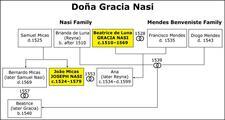
Conversas
After the establishment of the Inquisition in 1478, observance of crypto-Judaism became dangerous and more difficult. Women were at the center of Judaizing efforts, since the home was the only remaining institution in which one could observe Jewish law. Crypto-Jewish women most frequently observed the Sabbath and dietary laws.
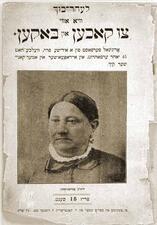
Cookbooks in the United States
American Jewish cookbooks capture the range of Jewish religious and cultural expression in the United States. Women took advantage of the versatility and variety of cookbooks to add their voices to the growing and developing Jewish culture in the United States.
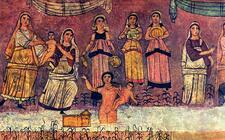
Daughter of Pharaoh: Midrash and Aggadah
The rabbis depict the daughter of Pharaoh, who rescued the baby Moses, as a righteous figure who did not follow her father’s wicked ways but rather converted and ceased worshiping idols. She was highly praised by the Rabbis, and the midrash includes her among the devout women converts and those who entered the Garden of Eden while still alive.

Feminist Jewish Ritual: An International Perspective

Festivals and Holy Days
According to halakhah, women are responsible for obeying all of Judaism’s negative commandments and for observing most of the positive ones, including the Sabbath and all of the festivals and holy days of the Jewish year. In some instances, however, male and female obligations on these days differ.
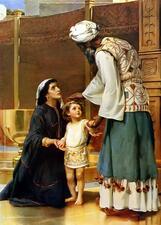
Hannah: Midrash and Aggadah
Hannah is depicted by the Rabbis as a righteous woman who was devout in her observance of the commandments and tested by God through her infertility. Her story is the basis for much of the rabbinic conception and rules of prayer.
Ishah Hashuvah (Woman of Distinction)
The Hebrew term ishah hashuvah appears in seven sugyot in the Babylonian Talmud, though its meaning is not clear. It seems to refer to a woman of some wealth or importance.
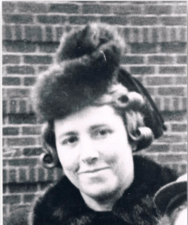
Irma Rothschild Jung
Irma Rothschild Jung, a native of Randegg, Baden, Germany, was born on July 1, 1897, and until her death close to a century later, dedicated her substantial energies to pioneering Jewish communal programs in aid of the needy. Her leadership and influence were deeply felt in the broader Jewish community by the countless individuals, young and old, who benefited from her generous spirit.
Legal-Religious Status of the Jewish Female
Gendered language in the Torah resulted in centuries of debate about a woman’s role with regard to commandments. The sages’ construction of a woman and her values was very negative, probably relating more to their vision of the ideal, which was male oriented, and applying its opposite to females.
Tamar De Sola Pool
Born into a family deeply involved in Jewish activism and scholarship, Tamar De Sola Pool spent over a decade as both a Hadassah chapter president and later Hadassah’s national president. She wrote two books in collaboration with her husband, volunteered at displaced persons camps in Cyprus, and helped resettle Jewish children in Palestine with Hadassah.
Sarah: Midrash and Aggadah
Shiphrah: Bible
Shiphrah: Midrash and Aggadah
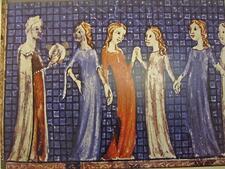
Medieval Spain
Written histories of Jews in medieval Spain rarely include women, so one must seek alternate sources. Marital status was the frequent topic of rabbinic responsa. Some Jewish women made their own income as merchants and moneylenders. Inheritance laws were problematic for Jewish women – disputes were settled in both Jewish and non-Jewish courts.
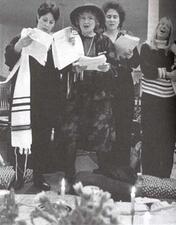
Spirituality in the United States
Jewish women’s spirituality developed historically within the confines of a patriarchal tradition. Over time, feminists have developed rituals and created spaces that honor the unique experiences of women.
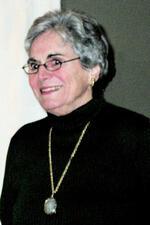
Shirley Cohen Steinberg
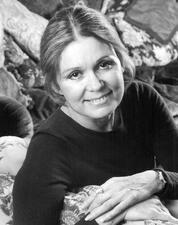
Gloria Steinem
Gloria Steinem was a leader of second-wave feminism and the co-founder of Ms. Magazine, the first feminist periodical with a national readership. As a journalist and spokesperson, she mobilized a generation of women to advance the cause of women’s liberation. Steinem has worked tirelessly all her life as an advocate for change.



